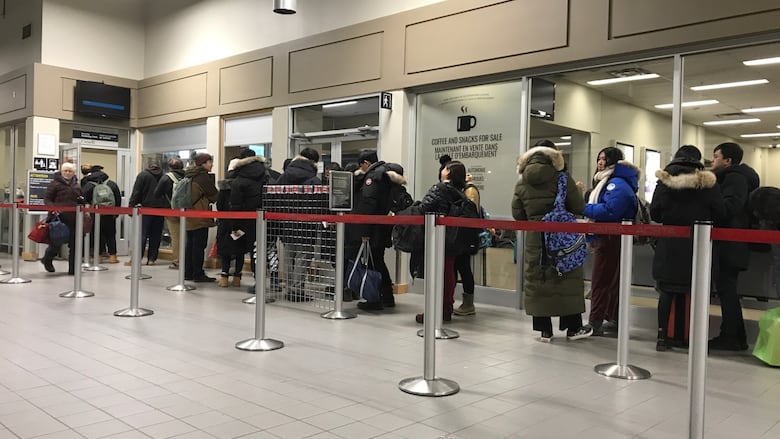Yellowknife airport joins national campaign to fight human trafficking
Airport partners with advocacy group Not In My City, co-founded by country star Paul Brandt

The Yellowknife airport has partnered with a national advocacy group to try to help stop human trafficking and sexual exploitation.
The partnership involves raising awareness about the issue among people travelling through the airport, as well as training airport staff to recognize and respond to signs of trafficking.
"With all of the security measures that are in place in airports, it's also a great opportunity to be able to observe the signs of trafficking in that environment," said Paul Brandt, a well-known Canadian country singer and one of the founders of Not In My City. It's the organization that's behind the initiative.
"In airports, often what we'll see is maybe a person who doesn't know where they are, doesn't have a lot of ... isn't carrying a lot of luggage with them ... also whether they're traveling with someone who's controlling their documents," he said.
Brandt and his wife were inspired to start Not In My City after watching a documentary about human trafficking and then deciding to explore the issue further. He said his wife is a victim of childhood sexual abuse and she was deeply affected by what they learned.
"We just started to try and learn more about the connections between human trafficking and early childhood trauma. And we started Not In My City now about eight years ago, and it's just been exploding in growth as people start to awaken to the issue of human trafficking," Brandt said.

He said that his organization had formed partnerships with 14 different airports at the start of the year, and that's now expanded to 40, including Yellowknife.
The campaign has developed a symbol — a yellow rose — that's publicly displayed in airports to indicate support and solidarity with victims of trafficking. The N.W.T. government says the symbol will be seen at "key points through the airport," according to a news release.
The territory's Infrastructure Minister Vince McKay said in a statement that the initiative "is sending a clear message: exploitation will not be tolerated here."
According to Not In My City, human trafficking is one of the fastest growing crimes in Canada, with 72 per cent of reported victims being younger than 25, and more than half of victims Indigenous.
Brandt describes human trafficking as "force, fraud and coercion facilitated by a third party. It's something someone does to you and they make a profit from you."
"Traffickers are very adept at identifying vulnerabilities in people's lives and figuring out a way to exploit that vulnerability."
Brandt says the Not In My City program is all about providing people with the tools to recognize and respond when they see the signs of trafficking. In airports, that means training staff.
While travelling recently, Brandt says he met an airport security worker who recognized his yellow rose pin. He says she told him that she had taken the training from Not In My City not long before, and it had helped her know what to do when she later identified a victim.
"That's what we want to see. We want to see that empowerment, not only for people working at the airport but for the entire community," Brandt said.
"We believe that awareness with action ends exploitation."
With files from Shannon Scott